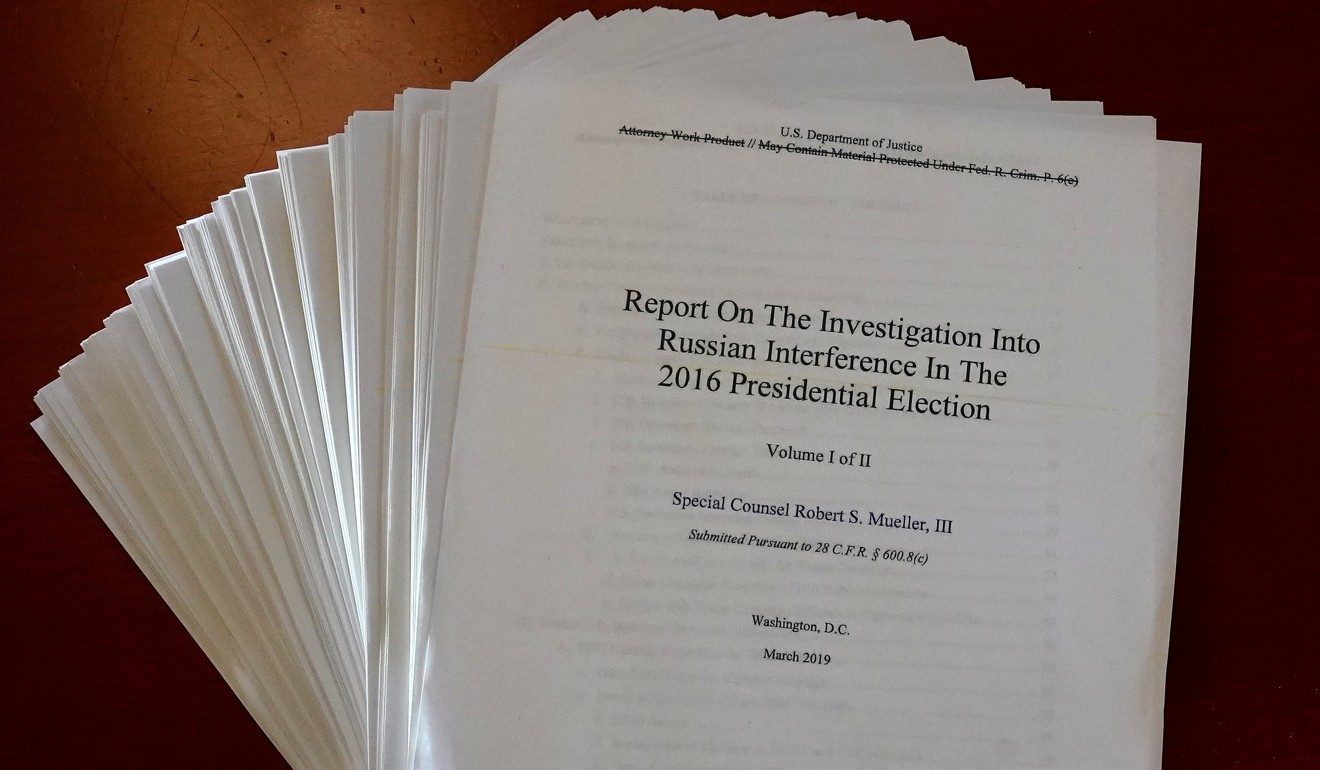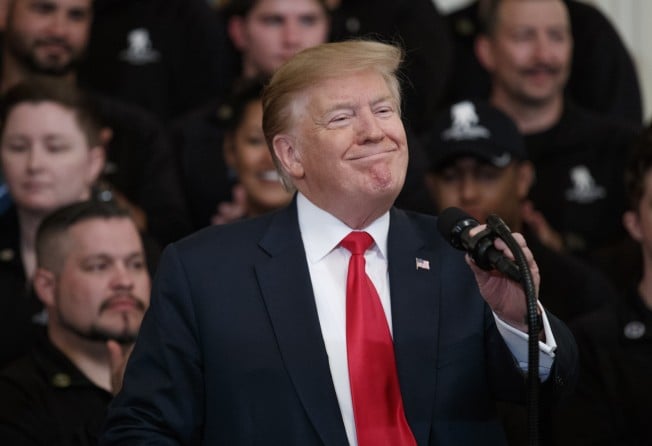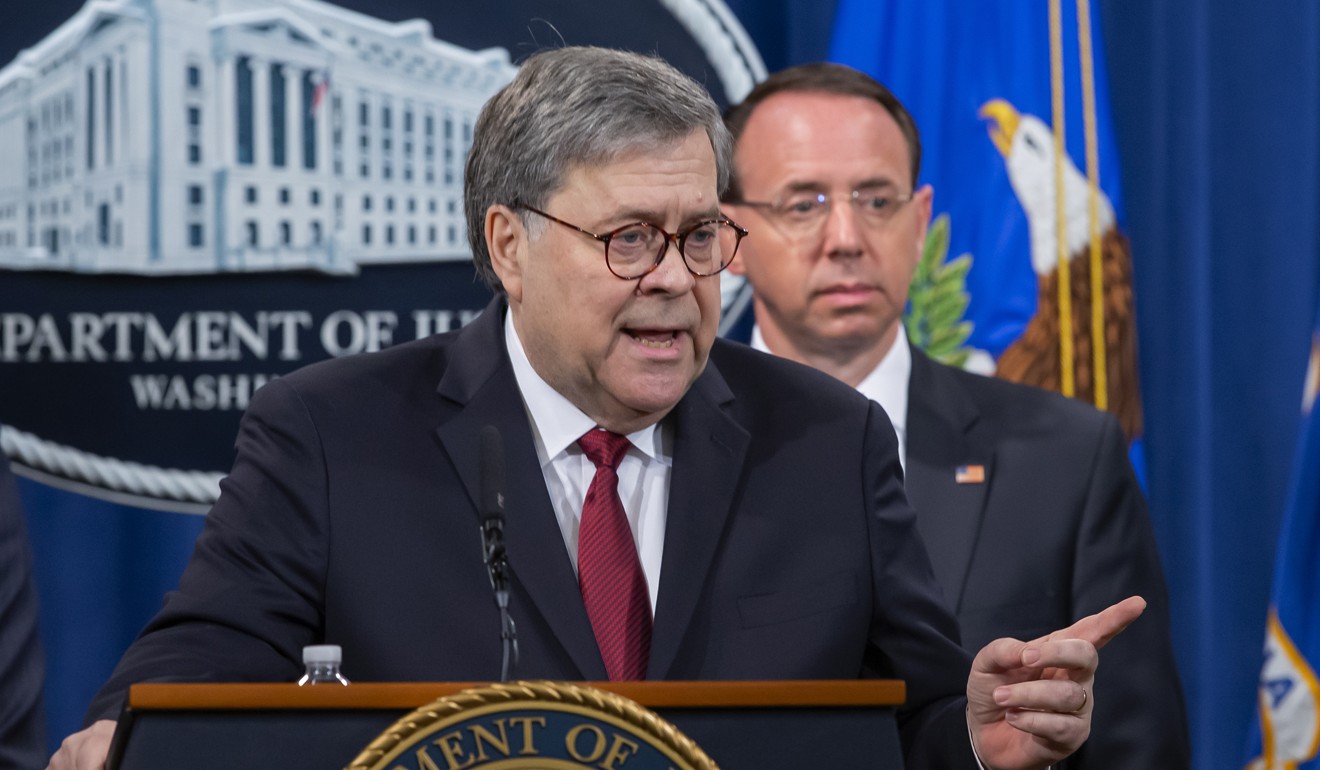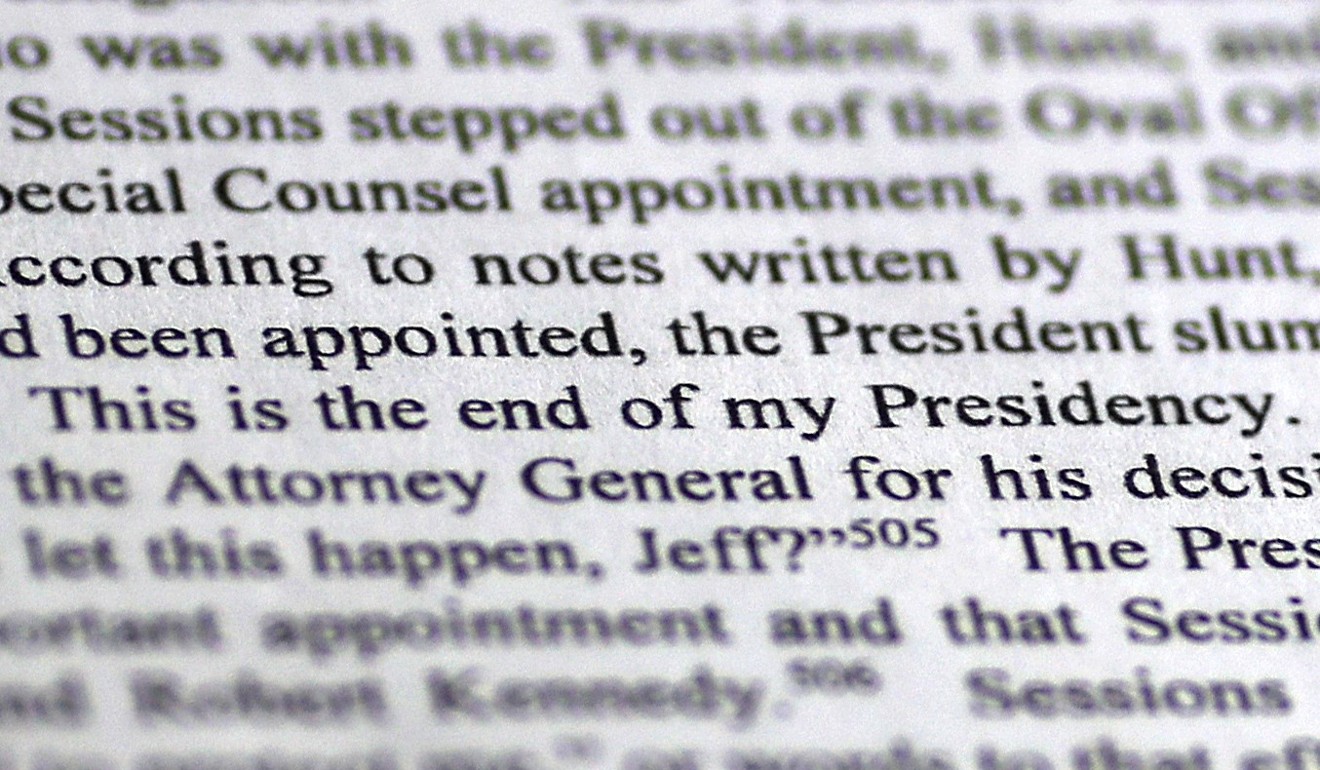
Robert Mueller’s Russia report is finally out – what’s next for Donald Trump and Congress?
- US president faces battle over release of unredacted report, continued investigations by Congress and even possible impeachment
- Saga that has dogged Trump since his election likely to continue into 2020

Special Counsel Robert Mueller’s 448-page report on Russia’s meddling in the 2016 US presidential election was publicly unveiled on Thursday, capping a 22-month investigation that US President Donald Trump repeatedly labelled a “witch hunt”.
The inquiry found no evidence that Trump’s 2016 campaign team engaged in a criminal conspiracy with Russia, and Mueller was unable to draw a conclusion on whether Trump committed obstruction of justice.

Although US Attorney General William Barr subsequently concluded that Trump did not commit the crime, Mueller’s report recounted 10 episodes involving Trump and evaluated whether obstruction of justice occurred.
Here are the next possible steps in a saga that has dogged the president since his election and is likely to continue into 2020 as he seeks re-election:
Many Democrats demanded a full report with no portions blacked out, or redacted.
The House Judiciary Committee could issue subpoenas demanding the full, unredacted report and related documents, as well as testimony gathered by Mueller from some of Trump’s former top White House aides.
If that action is taken, it is not clear whether the Justice Department would comply with the subpoenas. If not, this struggle could end up being arbitrated by the US Supreme Court.

Barr, the nation’s top law enforcement officer, is expected to testify before the House Judiciary Committee on May 2. Democrats will try to dig deeper into Mueller’s findings, while Republicans will probably defend Trump and argue that Mueller’s findings vindicate him.
Mueller is expected to testify in an open House Judiciary Committee hearing, but not until after Barr’s appearance.
Federal prosecutors in the Southern District of New York are examining Trump’s business practices and financial dealings, according to testimony delivered to Congress in February by former Trump lawyer Michael Cohen, who faces a three-year prison term for crimes related to payments arranged to women who claimed to have had affairs with Trump.
The prosecutors have wider latitude to investigate than Mueller and they will be operating independent of him.
New indictments by federal prosecutors in New York could overshadow the Mueller report.
The Mueller report noted that it had made 14 criminal referrals that were outside the scope of the special counsel’s authority.
The report said evidence was sent to “appropriate law enforcement authorities”, mainly other offices within the Department of Justice and the FBI.
The chances of Democrats in the House of Representatives moving to impeach Trump diminished last month when Barr announced Mueller had found no evidence of collusion with Russia.
But the details of Mueller’s findings might add new fuel for launching impeachment proceedings that have been conducted only three times in US history.
An impeachment effort would focus on whether Trump may have committed “high crimes and misdemeanours”. That is a broad definition that gives Congress greater latitude than Mueller’s stricter investigative mandate.
Nevertheless, House Speaker Nancy Pelosi, the top US Democrat, said weeks before the report’s release that she opposes impeachment, saying it would be too divisive to the nation.
Given that no Republicans have shown interest in impeachment so far, any such effort would probably fizzle in the Senate where their support would be needed for a conviction – unless the report changes some minds.
Nevertheless, some liberal Democrats have continued to press for impeachment.
Besides reviewing Mueller’s findings, Democrats are pursuing other avenues for congressional probes into Trump’s dealings as a businessman before he became president and since he moved into the White House in 2017.

For example, the House Ways and Means Committee set an April 23 deadline for the Treasury Department’s Internal Revenue Service to provide six years of Trump’s individual and business tax filings. Democrats think the forms could give clues to Trump’s possible business dealings with Russia.
Failure to meet that deadline could prompt the House to hold administration officials in contempt of Congress, triggering legal manoeuvres to get the agency to comply.
The Republican-led Senate Intelligence Committee has yet to release findings of its own in-depth investigation of Russia’s role in the 2016 elections. That could come later this year. Meanwhile, the House Intelligence Committee is ramping up its probe now that Democrats are in control.
House Intelligence, Foreign Affairs and Oversight committees have been seeking documents relating to Trump’s conversations with Russian President Vladimir Putin. The oversight panel also has been looking into security clearance issues involving Trump’s son-in-law Jared Kushner and others.
Trump may try to campaign on the Mueller investigation, which many fellow Republicans think was an effort by the FBI to unseat him. His rallying cry that the investigation was a witch hunt to remove a democratically elected president could be effective in mobilising his supporters, many of whom are already leery of Washington, to back him for a second term in office.
Trump wasted no time trying to get the political edge on Thursday. Hours before Mueller’s report was released he posted on Twitter: “The Greatest Political Hoax of all time! Crimes were committed by Crooked, Dirty Cops and DNC/The Democrats.”
— Donald J. Trump (@realDonaldTrump) April 18, 2019
Democratic presidential candidates have said little about the Mueller investigation, which has deeply divided an already polarised America. The question now is whether the release of the report will tempt them to comment, although that risks a bruising, and possibly losing, Twitter battle with Trump.
Polls show that voters are much more concerned about bread and butter issues surrounding the economy than the investigation. As a result, there may be little upside to Democratic candidates, especially in battleground districts dominated by moderate voters, seeking political advantage through the report.